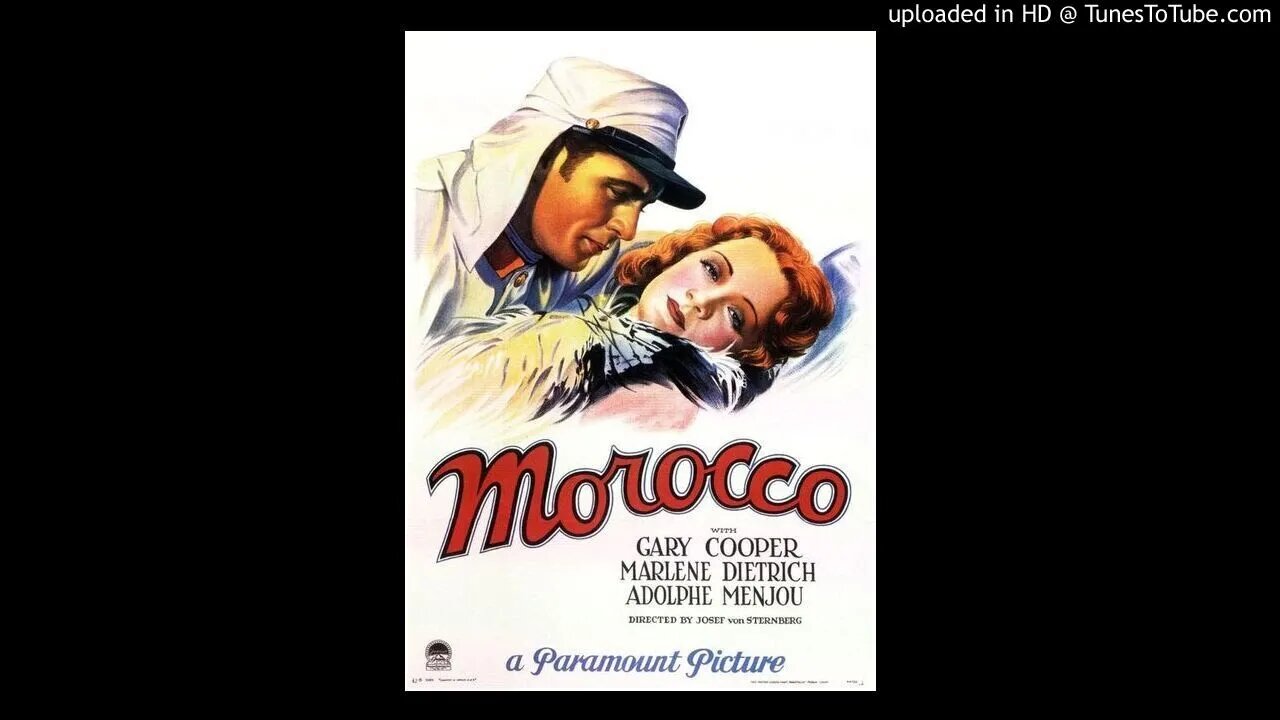Premium Only Content

Legionnaire and the Lady - Clark Gable & Marlene Dietrich - All-Star Radio Drama of Classic Film
Do you enjoy the variety of Chesterton Radio shows? Please consider supporting us to help us grow.
http://Patreon.com/ChestertonRadio Join our family and access Patron-only podcasts
Enjoy our shows anytime!
http://Listen.ChestertonRadio.com
http://Orthodoxy.ChestertonRadio.com
http://EverlastingMan.ChestertonRadio.com
http://Eugenics.ChestertonRadio.com
http://Distributism.ChestertonRadio.com
http://Gunsmoke.ChestertonRadio.com
http://ClassicFilms.ChestertonRadio.com
http://LesMiserables.ChestertonRadio.com
http://BraveNewWorld.ChestertonRadio.com
http://1984.ChestertonRadio.com
http://D-Day.ChestertonRadio.com
http://RerumNovarum.ChestertonRadio.com
http://Stations.ChestertonRadio.com
http://Latin.ChestertonRadio.com
http://TheseAreOurMen.ChestertonRadio.com
http://ArchitectureCodex.ChestertonRadio.com
Lux Radio Theater adaptation of Marlene Dietrich American debut film Moroco.
Morocco is a 1930 American pre-Code romantic drama film directed by Josef von Sternberg and starring Gary Cooper, Marlene Dietrich, and Adolphe Menjou. Based on the novel Amy Jolly (the on-screen credits state, "From the play 'Amy Jolly'") by Benno Vigny and adapted by Jules Furthman, the film is about a cabaret singer and a Legionnaire who fall in love during the Rif War, but their relationship is complicated by his womanizing and the appearance of a rich man who is also in love with her. The film is most famous for the scene in which Dietrich performs a song dressed in a man's tailcoat and kisses another woman (to the embarrassment of the latter), both of which were rather scandalous for the period.
The film was nominated for four Academy Awards in the categories of Best Actress in a Leading Role (Marlene Dietrich), Best Art Direction, Best Cinematography and Best Director (Josef von Sternberg).[1] In 1992, Morocco was selected for preservation in the United States National Film Registry by the Library of Congress as being "culturally, historically, or aesthetically significant".
-
 18:12:15
18:12:15
Chesterton Radio
1 year ago $4.09 earnedChesterton Radio Live - Christmas Mystery-Drama-Adventure-Comedy - Chuck the TV & Discover a Whole New World!
17.3K2 -
 2:36:28
2:36:28
I_Came_With_Fire_Podcast
13 hours agoObama's Treason, Trade War: Season Infinity, and Hunter's Pipe Dream
26K1 -
 2:52:51
2:52:51
TimcastIRL
6 hours agoObama Referred To DOJ For TREASON, Criminal Investigation, CIVIL WAR!! | Timcast IRL
227K126 -
 9:43:32
9:43:32
RalliedLIVE
13 hours ago $7.95 earned10 WINS WITH THE SHOTTY BOYS
105K7 -
 1:35:43
1:35:43
Badlands Media
17 hours agoAltered State S3 Ep. 38: Biolabs, Bitcoin & the Epstein Data Vault
63.8K14 -
 LIVE
LIVE
SpartakusLIVE
5 hours agoLAST Stream Until NEXT WEEK || Going to Florida to hang out w/ a SPECIAL Gaming Buddy
221 watching -
 10:19
10:19
MattMorseTV
1 day ago $11.78 earnedTrump just went SCORCHED EARTH.
75.1K63 -
 1:36:49
1:36:49
RiftTV
8 hours agoHow Much is the Government SPYING on You and STEALING Your DATA?! | Almost Serious | Guest: Matt Kim
37.4K4 -
 1:31:26
1:31:26
Glenn Greenwald
9 hours agoAaron Maté on More Russiagate Fallout, Protests in Ukraine, and Israel's Strikes on Syria With Special Guests John Solomon, Marta Havryshko, and Joshua Landis | SYSTEM UPDATE #491
122K46 -
 1:55:43
1:55:43
Melonie Mac
8 hours agoGo Boom Live Ep 56!
36.2K7